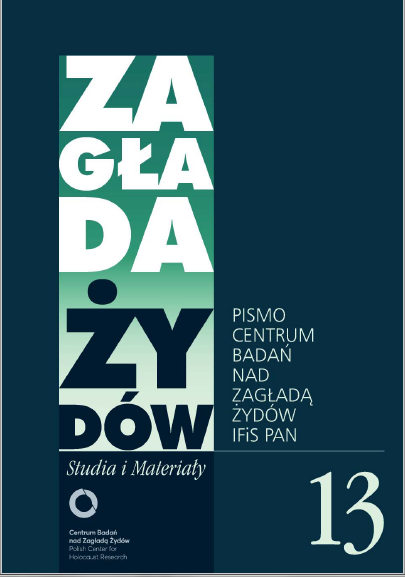Recepcja Holokaustu w Japonii w perspektywie porównawczej: Auschwitz – Nankin – Hiroszima
Holocaust Reception in Japan. Comparative Analysis: Auschwitz – Nanking – Hiroshima
Author(s): Ariko KatoSubject(s): Military history, Studies in violence and power, Victimology, WW II and following years (1940 - 1949), Post-War period (1950 - 1989), History of the Holocaust, History of Antisemitism
Published by: Stowarzyszenie Centrum Badań nad Zagładą Żydów & IFiS PAN
Keywords: atomic bomb; Hiroshima; Nagasaki; radiation syndrom victims; reception of the Holocaust; negationist movement;
Summary/Abstract: This article attempts to present the reception of the Holocaust in relation to the topics of the atomic bombs and Japanese war crimes. Author’s comparative analysis revealed a number of shared issues regarding the war memory mechanisms, and also the characteristic style of Japanese narration centered on the key word ‘peace’. After the testimony period we are slowly entering the post-testimony era, when there will be no living witnesses. But it is also a period which enables researches to conduct a distanced analysis of the political and social discourse on war, particularly regarding Japan, whose post-war historical memory was built with the use of language of ambiguity and omissions. Using the comparative approach makes it possible not only to show the similarity of a number of issues regarding narration about the war, but it also conditions new narrations, which move beyond paradigms of national memory.
Journal: Zagłada Żydów. Studia i Materiały
- Issue Year: 2017
- Issue No: 13
- Page Range: 230-258
- Page Count: 29
- Language: Polish

